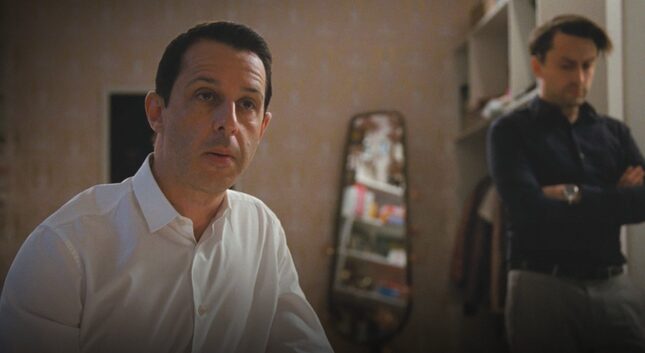Is Succession’s Banter Perhaps a Bit Too Much?
“I would like some suck suck on my dicky dick" -- what are we doing here?
EntertainmentTV

In a 2019 interview with Vulture, Academy Award-winning screenwriter Diablo Cody talked about a TV show she loves: Succession. “I’m totally going to get shit on for this,” she said, “but don’t you think some of the writing on Succession is a little reminiscent of the writing I got dragged for early in my career? … People thought it was so glib and obnoxious when I did it, and now people are enjoying it.”
The years following her Oscar-winning debut, the 2007 teen pregnancy dramedy Juno, saw a sharp backlash to Cody and her signature style. Much of the scorn contained obvious sexism targeting her appearance and former work as a stripper. But her writing style, too, was widely criticized. When Juno star Elliot Page hosted Saturday Night Live, his monologue was interrupted by Andy Samberg, who took the stage as Cody. “What’s your dental damage, Kermit the Blog?” Samberg demanded, mocking the mixture of off-beat jabs, pop-culture references, and puns that often marked Cody’s early writing. Juno’s “honest to blog” became infamous; similarly unforgettable was the line, referring to Juno’s positive pregnancy test and delivered by Rainn Wilson, “That ain’t no Etch-a-Sketch, this is one doodle that can’t be undid, homeskillet.”
Succession, which tells the story of power-jockeying and backstabbing within the fictional Roy media dynasty, has stylistic forebears that include some of TV’s most beloved shows, including the BBC’s The Thick of It, on which Succession creator Jesse Armstrong worked as a writer, and The Wire, with its famous five-minutes of “fuck.” But its writing style has less universally beloved antecedents as well. On Succession, the tweeness is dialed down, and the profanity is amped all the way up — but the resemblances to Cody’s can be strong. The show also contains echoes of Joss Whedon’s indulgences, which have also attracted backlash. Seeing a writing style that’s otherwise regarded as dated and is now largely unbeloved—but not exactly old enough that it’s due for a comeback—resurface on one of TV’s most acclaimed series feels surprising.
Cody told Vulture that her “favorite line in the world” was Succession’s, “You can’t make a Tomlette without breaking some Gregs.” The quip has breakfast-pun echoes of Juno’s “Your eggo is preggo,” and other Cody-like lines also abound. On Succession, bad news threatens to make patriarch Logan Roy “shit his pop tarts,” and a crisis is “the full Baskin Robbins—31 flavors of fuck.”
Writing for Vice, Gita Jackson penned one of the definitive analyses of “Whedonspeak” in an article examining its use in Netflix’s live-action Cowboy Bebop. Whedonspeak is verbose, cutesy, and often cheekily imprecise. “Sentences trail off as [characters] struggle to articulate themselves,” they wrote. “They say “thing” or “thingy” or “stuff” in place of more descriptive terms. Often these characters metatextually comment on their surroundings or the environments they’re in, usually in a sarcastic or snarky way.” As examples of Whedonspeak’s cultural creep, Jackson cites writing like,“This is my timey-wimey detector. It goes ding when there’s stuff,” from Doctor Who.
In earlier years, Whedonspeak and Cody-isms were often deployed by characters the audience was supposed to be endeared to, and presented as evidence of their smarts and singularity. But on Succession, the callow, power-hungry Roys speak this way precisely because they are glib and obnoxious.
-

-

-

-

-

-

-

-

-

-

-

-

-

-

-

-

-

-

-

-

-

-

-

-

-

-

-

-

-

-

-

-

-

-

-

-

-

-

-

-








































